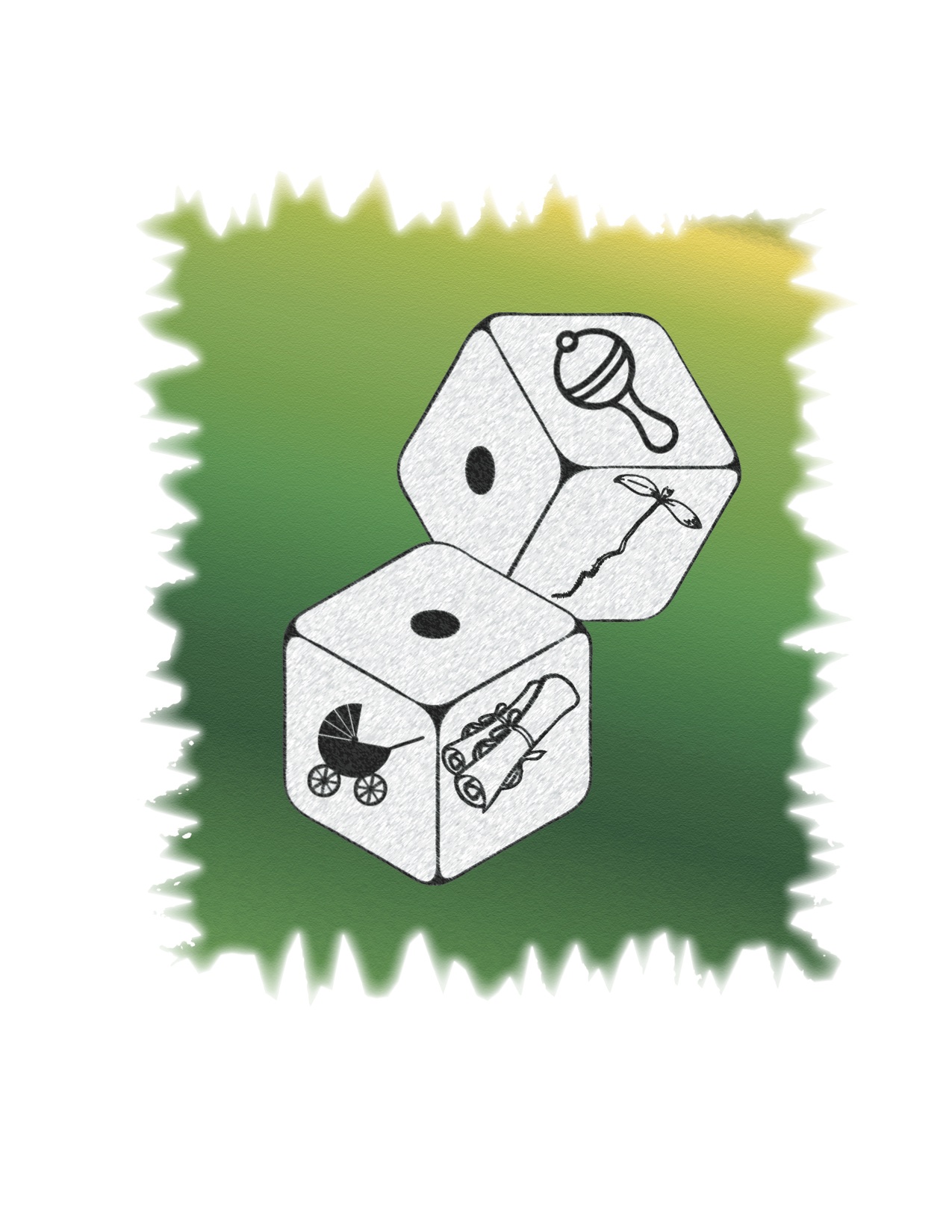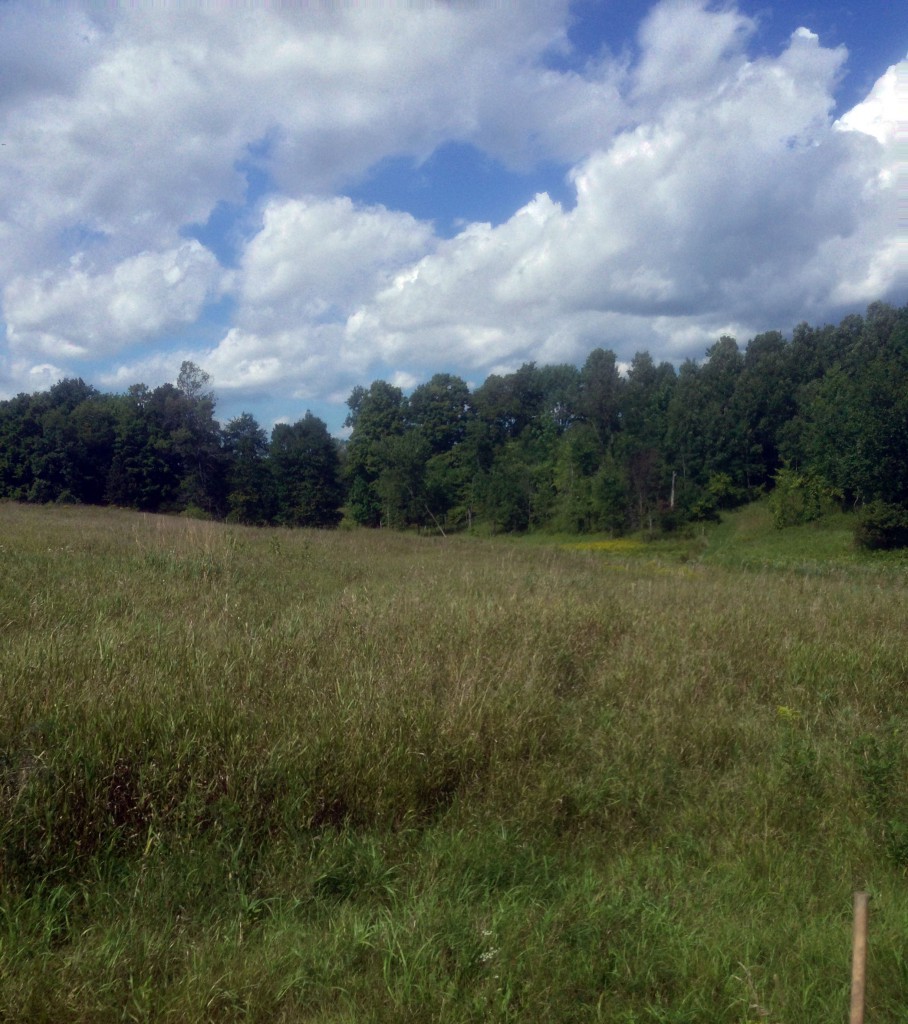the Seeds of Science
Your source for the latest from the University of Toronto's department of Ecology and Evolutionary Biology
Seeding Solace: Handling heartbreak in the field
Squeezing my life around work as a graduate student is routine to me. Plants don’t take breaks from growing, so I’ve learned to bend and twist my schedule around them. Like most people in research, I have worried about my “work-life” balance. Achieving success in science, while also maintaining meaningful relationships and outside interests is something everyone in our community has to contend with. A particular anxiety to me was when to have a baby, and so, before even beginning my PhD, I plotted out the best time to get pregnant. I charted out the next three years of my life, circling each month that would be smack in between two field seasons, when I felt giving birth would interfere with my research the least.
When the time came, I took the supplements, went to checkups, and got pregnant right on schedule. After taking the test, my husband and I sat together on our stairs, overwhelmed by the magic of our new secret. Things progressed smoothly, and, despite battling nausea on the subway and in the greenhouse, I felt blissful.
Right as I was preparing to head for the field, I went in for my first ultrasound. I was nervous, but excited. I had spent the previous three months listening to pregnancy podcasts and reading checklists. I had cut out caffeine, religiously checked for pasteurization, and made sure baths were not too hot. I felt like I had done everything right, and went to the appointment feeling confident.
Since my husband knew the radiologist, she came into the room with the technician and us. We all chatted excitedly. I saw my baby for the first time; nothing seemed as beautiful as the blurry image in front of me. Then there was a shift in the room, like all the air had been sucked out. The radiologist and technician had seen something. They left, and I knew something was wrong. The magic evaporated immediately, but it took two weeks to lose the baby.
This time was full of fear, pain and a barrage of tests. There was also an awful disconnect between my body and myself. All my excitement, my careful plans and diligent preparations were irrelevant. Things were derailed from the start, and I had no control or knowledge of the disaster brewing inside me. I remember walking into the operating room, how it was so much bigger and brighter than I expected. A nurse asked, I think in an effort to comfort me, if I had any other children. I shook my head and burst into tears.
My background in biology was useful for understanding some of the language and data, but it also meant I had to face up to the fact that this could happen again. Despite all evidence to the contrary, people tend to feel that bad luck should be meted out with some sense of fairness; one tragedy should inoculate us against another. But I’ve had to think about independent events since introductory statistics. The chances of rolling snake eyes are less than 3%, but if you have already rolled a one, the chance of getting another with the next roll is one in six. I would have to choose to roll the dice again.
I waited the requisite amount of time, while trying to catch up on the work I had neglected. During the previous month, my research had seemed trivial. There had been days I was not allowed to get out of bed, and others when I was allowed, but it had seemed impossible. But now I felt like I had lost my baby and my research too.
Ahead of me I had two collecting trips. Luckily, my husband had already planned to come with me on my trip to Europe, and so I resolved to try to enjoy the experience, and refocus on my work. Just before we left, I found I was pregnant again. As I began stitching my shattered hopes back together, I tried to strike a balance between my joy and fear. My husband and I were the only two people in the world who knew, and the secretive magic returned. The collecting went beautifully. We drove through Eastern Europe, easily spotting plant populations from the highway. We spent days stuffing plants into paper bags and evenings stuffing seeds into envelopes. We drank in the scenery in Slovakia and relaxed in a huge, empty hotel in Hungary; for the first time in months I was happy.
When trouble struck during the first pregnancy, I knew how lucky I was to live in Toronto and have access to world-class medical treatment. As though to reinforce this truth, the second pregnancy ended in rural Poland. We had just arrived at my husband’s old family home. He was downstairs talking to his grandmother when I realized something was wrong. I sat alone on the stairs outside her apartment for a long time. For the moment, my loss was private, and the longer I delayed knocking on the door, the longer I felt I could stave off its finality.
We drove first to a local hospital, then two more hours to a bigger one. Outside the obstetrics building was a disaster of abandoned cars on lawns; inside, women and their enormous bumps sat on narrow wooden benches in a dreary room. I needed a rhogam shot—essential to stop people, like me, who have a negative blood group, from building up antibodies to the positive blood groups of potential future fetuses. After a series of incredibly unpleasant tests, I was still shot-less. I was, however, offered a shot glass of what looked like swamp water, which I declined as politely as I could. Don’t be angry the doctor said, but I could not listen.
Not knowing what else to do, we stuck to the plan—visiting family, meeting other scientists, checking populations off my list. I grew exhausted and I began to devote the little energy I had to worrying that my plans were not working out—I was running out of time before my scholarship would expire, and with it, its paid maternity leave.
 We flew home. The next day I got up early to get to my local field site. I still had work to do. I was sore, which I blamed on the plane ride, and tired, which I blamed on jet lag. I knew that tomorrow I would be leaving to drive through the USA—Toronto to Delaware and then on to Virginia. Toward the afternoon, I felt so weak that I could hardly move, and I lay on the ground beside my car. I drove home early and went straight to sleep, but woke with a fever. We were in the emergency room for hours, where I shook uncontrollably. I had an infection; I would need to take antibiotics and return for an ultrasound the next morning. At least I did finally get the rhogam shot! I pushed back our departure time, but I knew that plants would be dying soon: they would begin to collapse and wither, and I would miss my window to collect their seeds. We left that afternoon. The pain shifted and seemed to radiate all over my left side. The reasons for this became obvious when I broke out into shingles the next week. I felt like I was falling apart.
We flew home. The next day I got up early to get to my local field site. I still had work to do. I was sore, which I blamed on the plane ride, and tired, which I blamed on jet lag. I knew that tomorrow I would be leaving to drive through the USA—Toronto to Delaware and then on to Virginia. Toward the afternoon, I felt so weak that I could hardly move, and I lay on the ground beside my car. I drove home early and went straight to sleep, but woke with a fever. We were in the emergency room for hours, where I shook uncontrollably. I had an infection; I would need to take antibiotics and return for an ultrasound the next morning. At least I did finally get the rhogam shot! I pushed back our departure time, but I knew that plants would be dying soon: they would begin to collapse and wither, and I would miss my window to collect their seeds. We left that afternoon. The pain shifted and seemed to radiate all over my left side. The reasons for this became obvious when I broke out into shingles the next week. I felt like I was falling apart.
Three months, two rounds of antibiotics and a set of antivirals later, my fieldwork was over, and I trained my thoughts on a fresh start. A new year began, and I discovered that I was pregnant again. If I can just get through the next week, I told my doctor, then I will be further along than last time and I can take a breath. I forced myself not to think about it—no caffeine, no hot baths, no hope. But it was no use, and a week later I woke up with a familiar pain. I hadn’t made it.
Pregnancy and academia
Miscarriage is a common experience; one in five times when a woman knows she is pregnant, she will experience a spontaneous abortion. Even pregnancies that proceed happily involve side effects, including nausea, fatigue, and hormonal shifts. And many couples have trouble conceiving. People discuss the demands of motherhood while being a researcher, but rarely are the challenges of conceiving and carrying a baby to term discussed in relation to lab and field work. Infertility and pregnancy loss are still very private topics.
I think we could do better. The first, most obvious step, is a change in benefits and parental leave. The lack of consistent parental leave for graduate students and postdocs make the goals of parenthood and a scientific career seem fundamentally incompatible. Through the luck of the draw I have a supportive supervisor and family-friendly department. But without a national policy, others are subject to the whims of their departments and their personal relationships. Few in Canada would argue that paid, job-protected parental leave is a bad thing, and yet young scientists are expected to do without. These kind of benefits cost money, but that seems a weak argument for putting a whole demographic of the scientific community in precarious circumstances, and national policies would make things more equitable and predictable for both young researchers and their supervisors.
Alongside the financial support, a shift in culture would also help. Thick skin is key in academia—it involves a lot of rejection—but this need not extend beyond our work. All of us will face emotional or health problems at some point in our careers. I find myself surrounded by brilliant, dedicated and hardworking people, who have privately extended extraordinary compassion to me. Yet I still feel an immense pressure to project a strong public face. Yes, we need to push ourselves hard when it comes to battling for publications, grants and jobs, but we also need to treat ourselves and those around us with kindness. We need to encourage people to ask for help and take time off when they need to. We need to talk more openly about issues of health, including mental health, and inclusion as we each face our own tragedies.
Long days in the field have given me a lot of time to reflect on the events of the past year. I see an odd parallel between trying to get pregnant and trying to land a job in science. In both cases there are things you can do to make your chances higher, and checkboxes you have to tick off. But, there is also luck involved and external forces beyond one’s control. I still hope to be a mom and a scientist. But if I can’t, that needs to be okay too. v
Available resources
University of Toronto
Counseling: http://caps.utoronto.ca/main.htm.
Family care: http://www.familycare.utoronto.ca/resources/parenting_prospective.html.
Toronto fertility clinics
http://www.hannamfertility.com/
http://www.newlifefertility.com/
Pregnancy loss
http://americanpregnancy.org/category/pregnancyloss
http://www.babycenter.com/0_coping-with-pregnancy-loss_4006.bc










